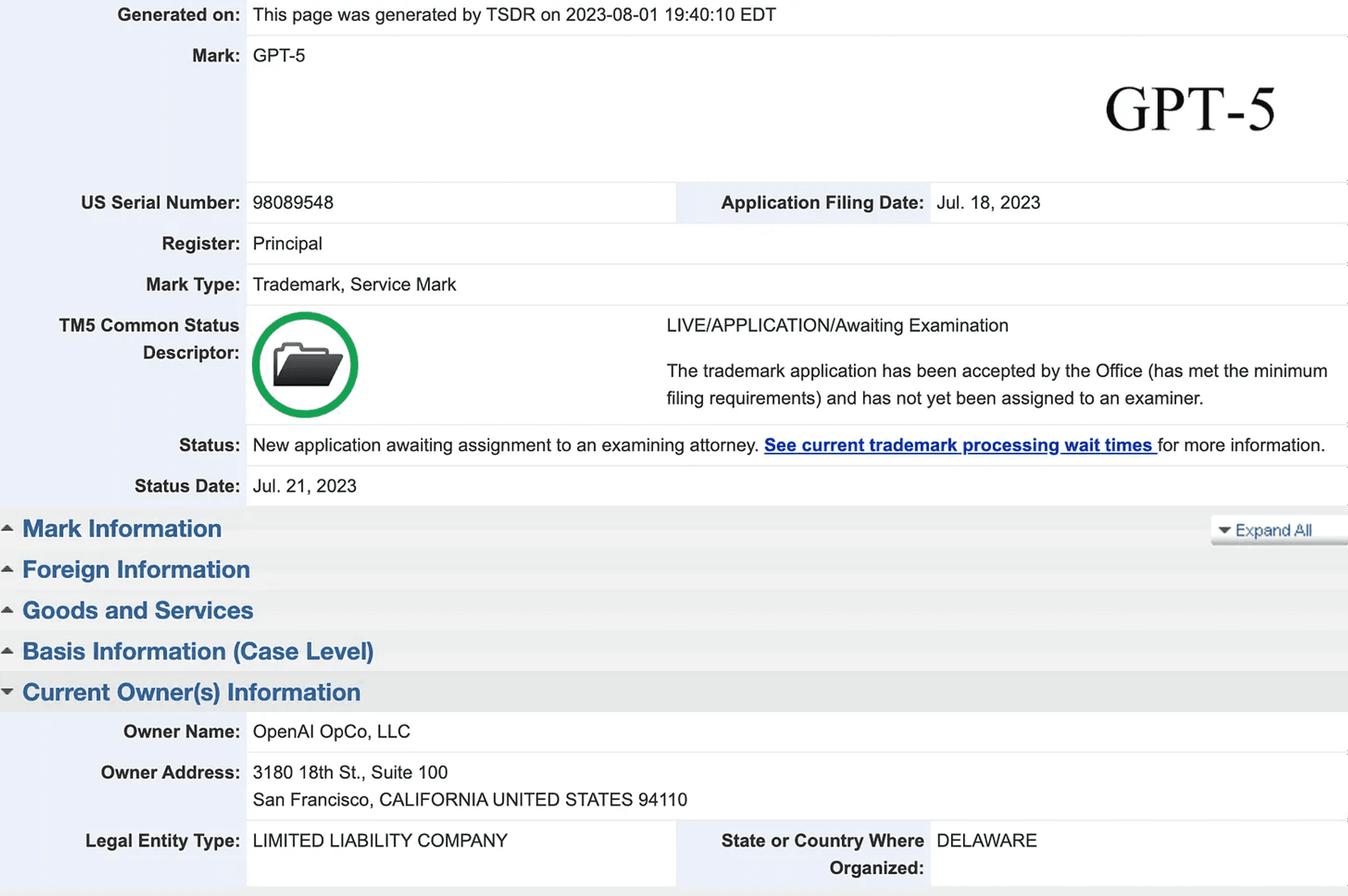August first week AI news
August 14, 2023

This Week’s AI News 📰

openAI files application to register GPT-5 trademark
Describes GPT-5 as "computer software downloads for use with language models," same as previous GPT-4 and 3.5 applications.
Currently under examination at the USPTO (United States Patent and Trademark Office)

Researchers discover how to bypass guardrails in AI chatbots
Researchers at Carnegie Mellon University and the AI Safety Center have found a way to successfully bypass the guardrails of all large language models.
Works for all chatbots (including chatGPT and Bard)
Advocates that all chatbots should be open-sourced to avoid guardrails.

OpenAI Secretly Developing Open Source Model?
Open AI is developing a new open source model, G3PO, to compete with Llama 2, an open source model jointly developed by Microsoft and Meta.
OpenAI recognizes the importance of open source models to remain competitive and plans to release G3PO.
Greg Lutkowski dropped from Stable Diffusion, reinstated as training model?
Google stock surges 10% this week, led by cloud, advertising, and hopes for AI
Google, Microsoft, Meta, Amazon, and the White House pledge to make AI safe and secure
This week's AI paper 📰
PanGu-Coder2: Boosting Large Language Models for Code with Ranking Feedback
Large language models are rapidly evolving with remarkable performance for code generation tasks.
In this paper, we propose an RRTF framework (*reaction ranking based on feedback), which can effectively and efficiently enhance large language models for code.
We show that PanGu-Coder2 consistently outperforms all previous Code LLMs on the OpenAI HumanEval, CoderEval, and LeetCode benchmarks.
To Adapt or Not to Adapt? Real-Time Adaptation for Semantic Segmentation
The goal of real-time online domain adaptation is to deal with unpredictable domain changes that occur during deployment.
In this paper, we propose the HAMLET framework for real-time domain adaptation, including a hardware-aware back-propagation adaptation agent and a dedicated domain shift detector.
Our approach enables simultaneous adaptation while performing semantic segmentation at over 29 frames per second on a single consumer-grade GPU.
This week's AI product 📦
CodeGeeX2: A More Powerful Multilingual Code Generation Model
CodeGeeX2 is based on ChatGLM2 with improved performance for multilingual code generation.
It supports Chinese-English input, large sequence lengths, and fast inference speeds, and can run with 6GB of memory.
Combined with the CodeGeeX plugin, it can be used as an AI assistant for solving programming problems with Chinese-English conversations.
llama2-webui
llama2-webui allows you to run Llama 2 locally with GPU or CPU on Linux, Windows, Mac via gradio UI.
It supports Llama-2-7B/13B/70B in 8-bit and 4-bit, with GPU inference and CPU inference with 6GB VRAM.
By BetaAI
© 2023
